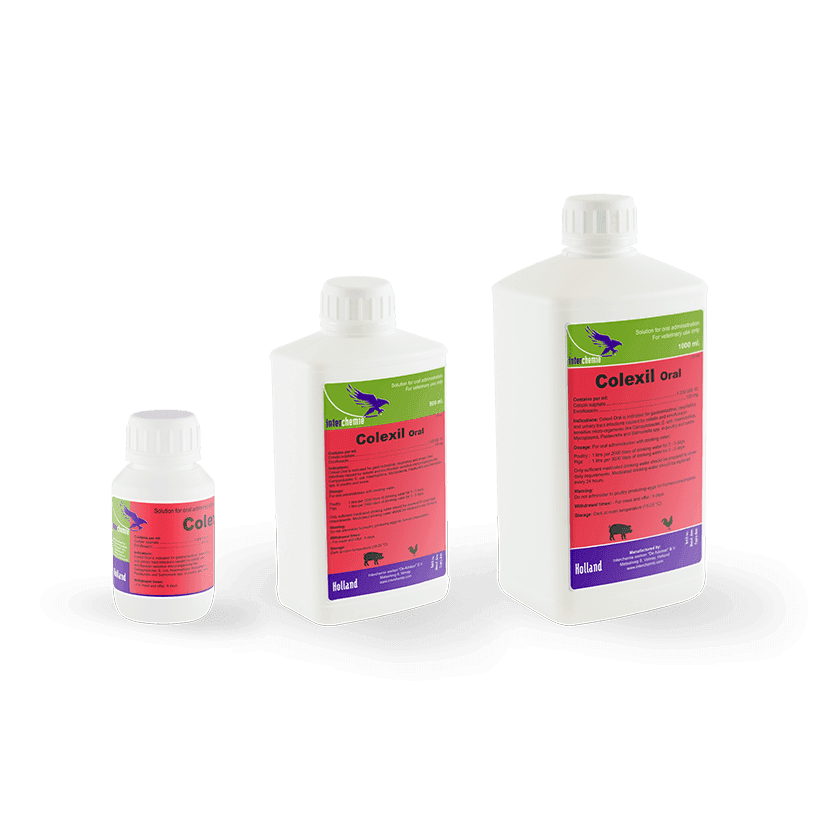
Enro-Colistin (100mL | 1 Liter)
V-X2BZK (0 reviews)
This product is an anti-microbial drug needed by farmers for the effective treatment of diseases affecting livestock animals.
- It is indicated for veterinary use only.
- Keep all drugs out of reach of children.
- Refer to the product label before use and follow all instructions strictly.
Place your orders now.
Product ID: 5219
Availability:
In Stock
Brand: UNCATEGORIZED
Category: UNCATEGORIZED
₦ 3,750
Buy this product to earn upto 375,000 Cashback Points
Share product:
Enro-Colistin (100mL | 1 Liter)
V-X2BZK (0 reviews)
This product is an anti-microbial drug needed by farmers for the effective treatment of diseases affecting livestock animals.
- It is indicated for veterinary use only.
- Keep all drugs out of reach of children.
- Refer to the product label before use and follow all instructions strictly.
Place your orders now.
Product ID: 5219
Availability:
In Stock
Brand: UNCATEGORIZED
Category: UNCATEGORIZED
₦ 3,750
Buy this product to earn upto 375,000 Cashback Points
Share product:
Product Description
Enro-Colistin
Enro-Colistin is an anti-microbial drug containing appropriate amounts of enrofloxacin and colistin. It is indicated for the effective treatment of diseases, especially diseases involving Gram-negative and Gram-positive bacteria in poultry, calves, and pigs.
- The use of antibiotics in poultry and livestock production is favorable to farmers and the economy as well because it has generally improved poultry performance effectively and economically.
- The range of effects includes Campylobacter, Clostridium, Corynebacterium, E. coli, Erysipelothrix, Haemophilus, Pasteurella, Salmonella, penicillinase negative Staphylococcus, and Streptococcus, spp.
- Colistin, also known as polymyxin E, works as a cationic detergent, damaging bacterial cytoplasmic membrane and causing leakage of intracellular contents.
- Available as injectable and injectable is at times given via inhalation
Contra-indication of Enro-Colistin
- Do not administer to animals hypersensitive to enrofloxacin.
Incompatibility with other drugs
- Do not combine with chloramphenicol, tetracycline, erythromycin, and lincomycin
Effects of bacterial infections on poultry production
- In general, antibiotics are used in phytosanitary treatments, fish farming, animal feed, and human or veterinary medicine where they can be used as a preventive or curative treatment.
- Strictly following the usage guidelines, the poultry industry uses antibiotics to improve meat production through increased feed conversion, growth rate promotion, and disease prevention.
- While antibiotic resistance is a complex issue, the reasons antibiotics are a necessary and vital part of modern agriculture are simple, straightforward, and guided by the belief that antibiotics must always be used responsibly.
- Antibiotics help make food safe by keeping chickens healthy and reducing bacteria entering the food supply.
- Proper use of antibiotics helps keep chickens healthy and minimizes the impact on the environment.
Feature
Shipping Information
Local Pick-Up: 2 - 4 days
Office Pick-Up: 3 days